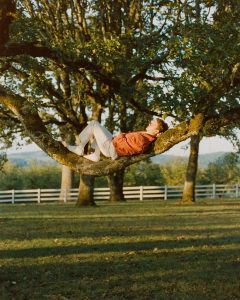
We are not even two years into Covid, but it is already clear that the virus is revolutionizing civilization. Things we took for granted until recently, such as work, school, and entertainment, have become debatable on many levels. The virus is not only affecting our health and our lives; it is changing how we see ourselves as human beings and as members of society.
Until the virus landed on us, we branded people, in large part, by their careers or jobs, and their lifestyles. Having a career used to be a symbol of success. There was a romantic tone to the word, and images of frequent “work” trips, company credit cards, an apartment in a high-rise with a guard in the lobby, and a social status for others to envy.
Somehow, Covid dimmed the glamour. It is not that people utterly reject the idea of a career, but it is not as enviable as it was two years ago, and its appeal is only waning.
We still want money, and we always will, but we are willing to pay much less for making lots of it. We are not willing to sacrifice so much of our social lives, our other interests, our peace of mind, and our family time for a social status. In part, it is because we no longer find it so enticing, and in part, it is because others no longer find our career “titles” enviable. They see our long hours at the office, our frequent flights, and they pity us for having to work so hard instead of enjoying life.
But the pandemic has gone deeper than changing our perception of work. Bit by bit, it has reawakened in us the “big” questions, those we have suppressed for years under the pressure of survival in a hyper capitalistic world: the questions about the meaning of life.
Just as the warming climate melts the permafrost and lets out gases that change the composition of our atmosphere, the virus is dissolving the ice in our hearts and opens them to long-frozen feelings that change the atmosphere in our society. We are learning to think more socially and less individually.
The fear of infection has made us acknowledge that we are dependent on others for our health. Now, with the crisis in supply chains due to the coronavirus, it makes us realize we are dependent on each other for our food, for the price we pay for things, for our ability to buy holiday gifts, for our entertainment, our social lives, and for our schools and education.
We may not realize it but the virus teaches us to reassess our values: who we consider great and admirable, and who we despise. It teaches us to judge people not by how much they make, but by how much they contribute to society. We started by applauding health and medical workers, then moved on to acknowledging that supermarket workers are indispensable, and now we realize that these invisible people are the ones who enable us to live and worry about ourselves.
Thanks to the virus, we are finally learning that each person is unique because each person can make a special contribution to society that no one else can. In our uniqueness, we are all equal.
When the process of welcoming each person’s uniqueness is complete, we will find that the hatred in our hearts is gone. We will realize how precious each of us is, and we will be grateful for the existence of every human being on this planet. When this happens, we will be thankful to Covid – the career terminator and generator of unity and peace.